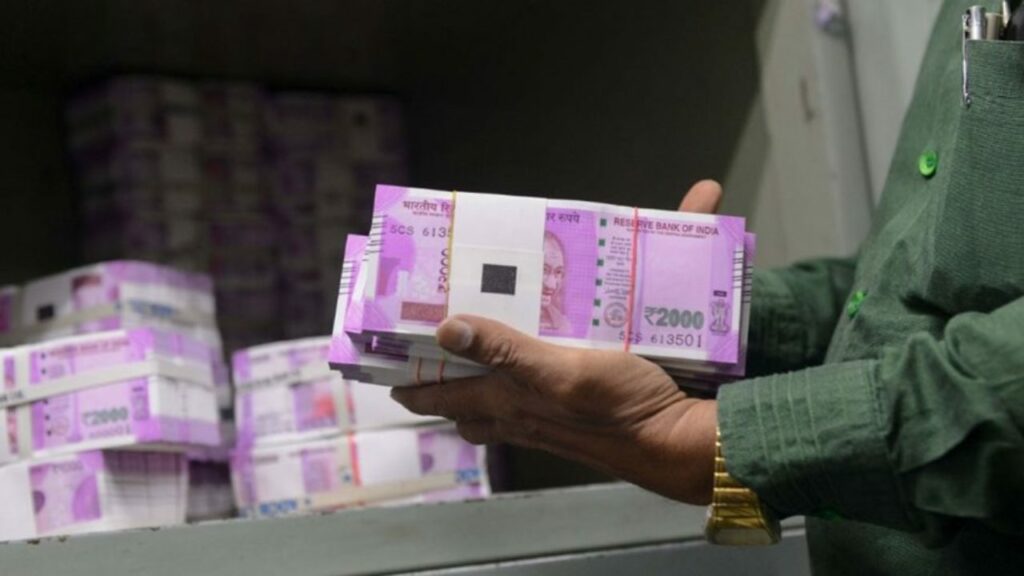The RBI had asked banks to provide deposit and/or exchange facilities for Rs 2,000 notes until September 30, 2023.
And now, 98.18% of the Rs 2000 banknotes have been put back into circulation, according to a statement released by the Reserve Bank of India (RBI).

Read on to find out all the details!
98.18% Of Rs. 2000 Bank Notes Put Back Into Circulation
According to the Reserve Bank of India (RBI), 98.18% of the 2000 rupee notes have been put back into circulation.
Only Rs 6,471 crore worth of Rs 2000 banknotes were in circulation as of February 28, 2025.
On May 19, 2023, the RBI first announced that the Rs 2000 banknotes would no longer be in circulation.
There are now much fewer Rs 2000 banknotes in circulation than there were on May 19, 2023, when their total value was Rs 3.56 lakh crore.
As per the statement, “Thus, 98.18 per cent of the Rs 2000 banknotes in circulation as on May 19, 2023, has since been returned.”
All bank branches offered the option to deposit or exchange Rs 2000 banknotes until October 7, 2023.
RBI issue offices are still taking Rs 2000 banknotes to deposit into bank accounts as of October 9, 2023.
The exchange or deposit of Rs 2000 notes is still made possible by the 19 RBI issue offices.
Additionally, the public can send Rs 2000 banknotes to RBI issue offices via India Post from any post office to have them credited to their bank accounts.
The Rs 2000 banknotes are still legal tender even though they have been removed from circulation.
Rs 2000 Notes Circulation Crashed 97% Post Withdrawal Call
In March 2024, the Reserve Bank of India (RBI) published data indicating that the total value of Rs 2000 currency notes active in circulation has shrunk by a staggering 97.6% as of February 2024 compared to levels preceding their usage discouragement announcement made in May 2023.
The RBI, while stating that Rs 2000 notes remained legitimate, had initially offered exchange options, which appeared to have received strong support from the masses, as confirmed by the figures. With higher denomination bills rarely used in everyday transactions, individuals likely found it convenient to redeem them.
This reinforced public acceptance of the planned phase-out by responsibly liquidating their holdings. However, the central bank remained legally obligated to honor all old Rs 2000 notes presented at its counters or bank branches for the foreseeable future, as per the norm.












